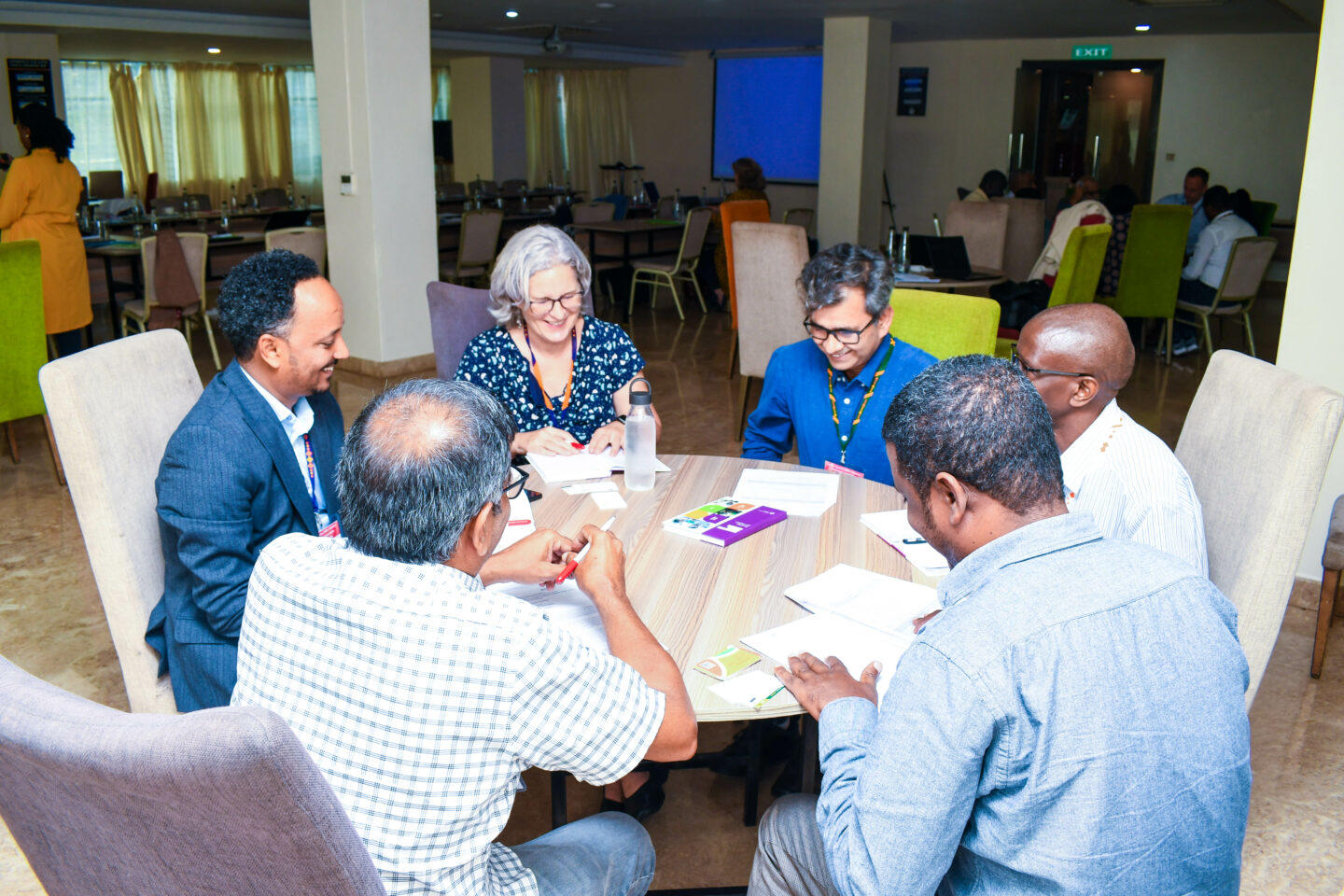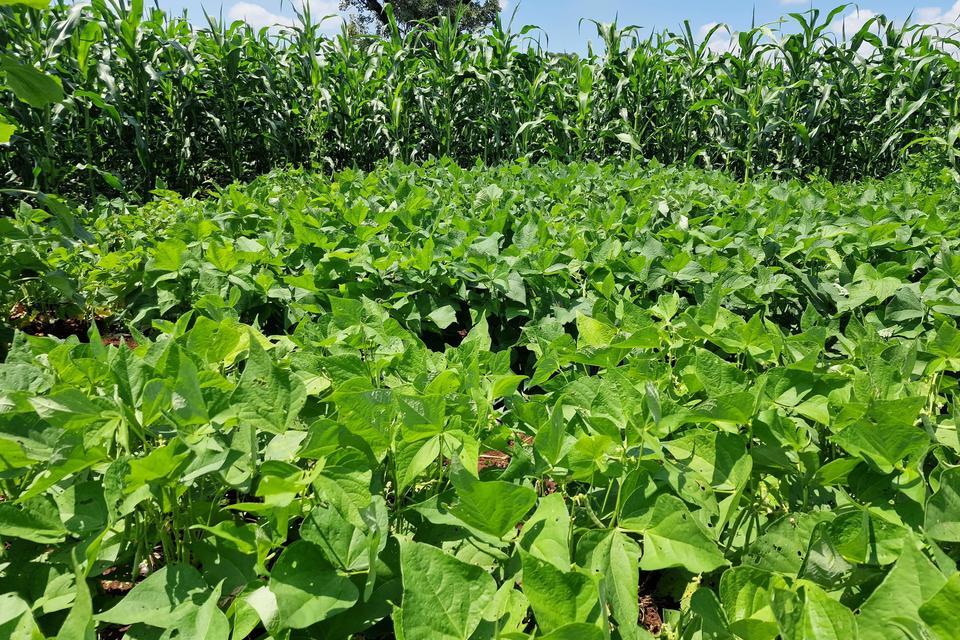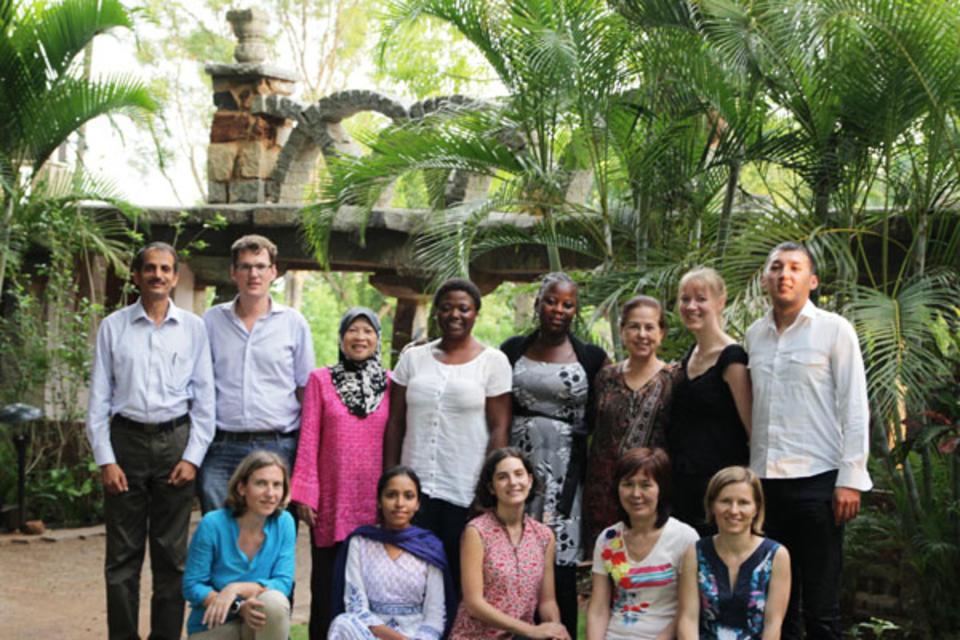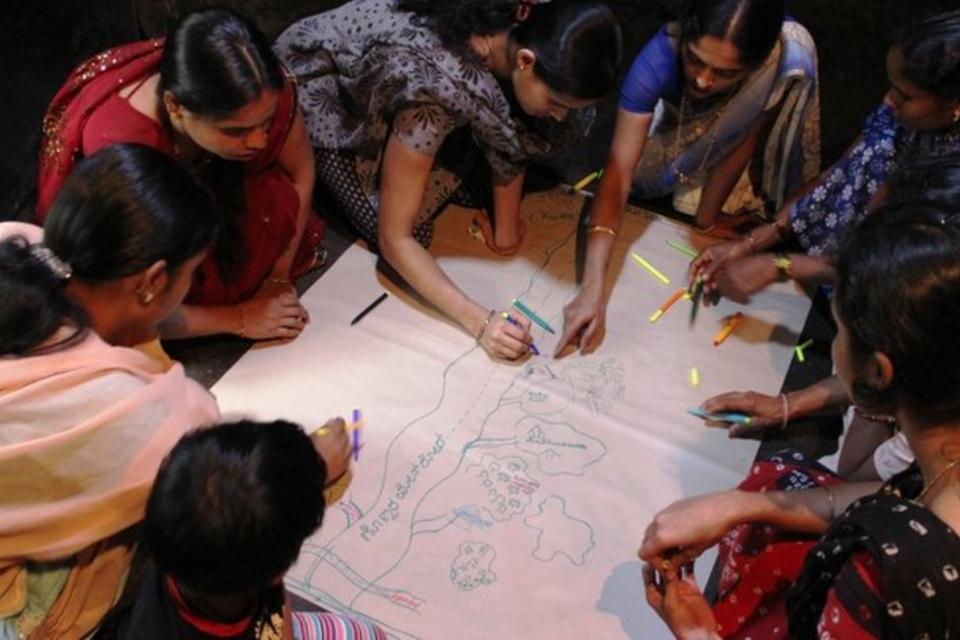Research Articles Bundling gender responsive socio-technical innovations: Unpacking the what and how

The CGIAR Gender Equality Initiative organized a stakeholder workshop in May 2023, bringing together diverse participants to explore technology and innovation bundles that empower women farmers and enhance farming practices for increased resilience.
By: Eileen Nchanji, Lutomia Cosmas, Dessalegn Ketema, Everisto Mapedza, Hom Gartaula, Prama Mukhopadhyay, Ranjitha Puskur, Kevin Johnstone and Sam Barrett
The CGIAR Gender Equality Initiative organized a stakeholder workshop on 23 – 24 May 2023. The workshop focused on exploring the technology and innovation bundles that have the potential to revolutionize farming practices and enhance the resilience of women farmers. The workshop officially opened by Dr Nicoline de Haan, Director, CGIAR Gender Impact Platform, served as a forum for diverse stakeholders, including researchers, policymakers, farmers, and industry representatives, to collaborate and envision transformative solutions that address the specific technological needs and challenges women farmers face.
During her opening remarks, Nicoline rightly emphasized the importance of increasing the adoption of innovations and technologies in building greater resilience to address the higher variability climate change brings. She also emphasized the pivotal role of the HER+ initiative, including empowering women in technology use by involving them as partners and agents of change.
“A keen focus on innovation and technology can significantly contribute to achieving better outcomes for farmers, particularly women farmers, who are disproportionately affected by the impacts of climate change. Past gender work has been about giving women technologies without much thought on how they will use the technology. This method did not yield much change as women lacked the knowledge on how to use the technology, which made it difficult for them to adopt and sustain. HER+ initiative deviates from this norm by unlocking the how of empowering women on technology use by involving them as partners and agents of change”, said Nicoline.

Breakout session discussion on technology packaging and bundling. {PHOTO By Martha Awinoh- CGIAR}
Discussions on technology and innovation bundles that are revolutionary to farmers
Increasing the adoption of innovations and technologies is critical to building greater resilience in the face of higher variability for better outcomes. Technical innovations to address climate change in agriculture, land, and water systems have low uptake by women, and evidence of their impact on women’s empowerment or resilience has also been inconclusive. Accelerating technology adoption in an equitable and sustainable manner requires a deep understanding of external drivers, social and gender norms, as well as institutional, policy, and regulatory contexts.
Each participant individually described their own understanding of technology, innovation and a technology bundle. Some participants perceived technology and innovations as standalone or a group of abstract or visible bundles provided to farmers to improve their farming practices. This definition considers the drivers (surrounding and/or the requirements) that enable farmers to take up these technologies.
Other participants perceived technology and innovation bundles as a combination of one or more technologies put together and offered to farmers together with knowledge, information and processes required for them to adopt, use and benefit. These include training on various aspects of management, access to services (markets, credit, etc.), group dynamics, record keeping, social capital, policies, gender and social norms, all of which determine technology adoption. This definition resonates with the fact that offering farmers a technology or an innovation is not enough, but requires a combination of knowledge and information, capital and other key services required for adoption to take place.
Outcome of Socio-technical Innovation Bundles (STIBs) Framework Concept
The concept of socio-technical innovation bundles (STIBs) has gained significant attention in the field of agriculture and food systems. CGIAR’s Gender Equality Initiative (HER+: Harnessing Gender and Social Equality for Resilience in Agrifood Systems) aims to achieve climate resilience by strengthening gender equality and social inclusion across food systems in the Global South. As a part of this work, the International Institute for Environment and Development (IIED) developed a framework built off the STIBs concept that tries to link access to productive technologies, resources, and services to achieve outcomes that are healthy, equitable, resilient, and sustainable (HERS) for farmers. In the workshop, the IIED team shared the draft framework with participants and solicited their feedback to finetune and validate it.
The literature used to develop the framework indicated gaps, especially in women’s empowerment and resilience indicators. Participants in the breakout group explored different meanings of STIBs. The discussions elicit social bundles as both physical and abstract and revolve around making people change their minds, which is a process that can take time. This must be preceded by creating awareness about innovation, technology and processing the messages before adoption. Participants acknowledged the need for capacity building and training of farmers and knowledge transfer for effective adoption and utilization of STIBs.
The workshop tested the application of the STIBs for specific projects to select context-specific interventions to build suitable STIBs that generate better outcomes and broader impacts. This will feed into the implementation of the Learning Labs in different agroecological and sociocultural contexts across Africa and Asia. Participants’ feedback will be used to revise the STIBs framework and feed into diverse published materials.
HER+ Gender Equality initiative and partners are working on four areas of gender inequalities in the agri-food system: access to resources, women’s agency, social norms, policies, and governance. The work on these four areas is divided into four work packages, and this workshop is part of Work Package 2, which aims to achieve climate resilience by strengthening gender equality and social inclusion across food systems in the Global South, particularly by developing and testing context specific bundles of social and technological innovations which would increase the uptake of and benefits for women in the agri-food systems.



